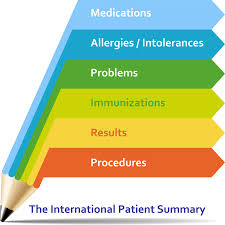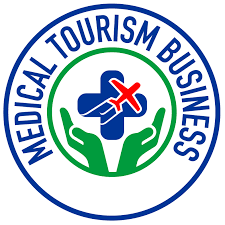
Exploring the Growth of Halal Medical Tourism: A Bridge to Quality Healthcare
The Rise of Halal Medical Tourism: A Growing Trend in Healthcare
In recent years, the concept of halal medical tourism has gained significant traction in the healthcare industry. Combining the principles of Islamic ethics and medical practices, halal medical tourism offers Muslim patients access to healthcare services that align with their religious beliefs and cultural preferences.
Halal medical tourism encompasses a wide range of healthcare services, including medical treatments, wellness programs, and rehabilitation services that comply with Islamic dietary laws and ethical guidelines. This specialized form of medical tourism caters to the needs of Muslim patients seeking high-quality healthcare while adhering to their faith-based requirements.
One of the key aspects of halal medical tourism is the availability of halal-certified facilities and services that ensure compliance with Islamic principles. From halal food options to gender-segregated accommodations and prayer facilities, halal medical tourism destinations strive to create a comfortable and inclusive environment for Muslim patients.
Halal medical tourism destinations are not only limited to countries with predominantly Muslim populations but are also emerging in non-Muslim-majority countries that recognize the growing demand for specialized healthcare services among Muslim travelers. These destinations often collaborate with accredited healthcare providers and religious authorities to offer tailored medical experiences that meet the specific needs of Muslim patients.
Furthermore, halal medical tourism promotes cultural sensitivity and respect for religious diversity in healthcare delivery. By offering services that respect Islamic values and traditions, healthcare providers participating in halal medical tourism contribute to promoting inclusivity and enhancing the overall patient experience for Muslim individuals seeking treatment abroad.
As the global demand for halal medical tourism continues to rise, it is essential for healthcare providers and destination countries to adapt their services to cater to this niche market effectively. By embracing the principles of halal medical tourism and providing specialized care for Muslim patients, the healthcare industry can foster greater trust, understanding, and accessibility in cross-border healthcare delivery.
Overall, halal medical tourism represents a promising trend in the evolution of global healthcare, offering a unique opportunity for Muslim patients to receive quality treatment while upholding their religious beliefs. With its focus on cultural sensitivity, ethical practices, and personalized care, halal medical tourism is poised to shape the future landscape of international healthcare delivery.
Understanding Halal Medical Tourism: Answers to 7 Common Questions
- What is halal medical tourism?
- How does halal medical tourism differ from traditional medical tourism?
- Are there specific destinations known for offering halal medical tourism services?
- What types of healthcare services are typically included in halal medical tourism packages?
- Is it necessary to be a Muslim to benefit from halal medical tourism?
- Are the facilities and services in halal medical tourism destinations certified as halal?
- How can I ensure that my cultural and religious preferences are respected during a halal medical tourism trip?
What is halal medical tourism?
Halal medical tourism refers to a specialized form of healthcare service that caters to Muslim patients by providing medical treatments, wellness programs, and rehabilitation services that adhere to Islamic dietary laws and ethical guidelines. This emerging trend in the healthcare industry offers Muslim individuals access to healthcare facilities and services that respect their religious beliefs and cultural preferences. Halal medical tourism destinations prioritize the provision of halal-certified facilities, including halal food options, gender-segregated accommodations, and prayer facilities, to create a welcoming and inclusive environment for Muslim patients seeking treatment abroad. By offering culturally sensitive and religiously compliant healthcare experiences, halal medical tourism aims to meet the specific needs of Muslim travelers while promoting greater inclusivity and diversity in global healthcare delivery.
How does halal medical tourism differ from traditional medical tourism?
Halal medical tourism differs from traditional medical tourism in that it caters specifically to Muslim patients by offering healthcare services that adhere to Islamic principles and guidelines. While traditional medical tourism focuses on providing quality healthcare services to international patients, halal medical tourism goes a step further by ensuring that the facilities, treatments, and overall experience are in line with halal requirements. This includes offering halal-certified food options, gender-segregated accommodations, prayer facilities, and other amenities that respect the religious and cultural preferences of Muslim patients. By prioritizing the needs and beliefs of Muslim individuals, halal medical tourism provides a unique and tailored healthcare experience that sets it apart from conventional medical tourism practices.
Are there specific destinations known for offering halal medical tourism services?
In the realm of halal medical tourism, there are specific destinations globally recognized for their commitment to providing specialized healthcare services that adhere to Islamic principles. Countries such as Malaysia, Turkey, the United Arab Emirates, and Indonesia have emerged as popular hubs for halal medical tourism, offering a range of halal-certified facilities and services tailored to meet the needs of Muslim patients. These destinations not only prioritize the provision of high-quality medical treatments but also ensure a culturally sensitive and inclusive environment that respects the religious beliefs and preferences of individuals seeking healthcare services while traveling abroad.
What types of healthcare services are typically included in halal medical tourism packages?
Halal medical tourism packages typically encompass a comprehensive range of healthcare services tailored to meet the specific needs of Muslim patients. These packages often include medical treatments such as surgeries, consultations with specialists, diagnostic procedures, and rehabilitation services that adhere to Islamic dietary laws and ethical guidelines. Additionally, halal medical tourism packages may offer wellness programs, alternative therapies, and holistic treatments that promote overall health and well-being while respecting the religious beliefs and cultural preferences of Muslim individuals. By providing a diverse array of healthcare services within the framework of halal principles, these packages aim to ensure that Muslim patients receive quality care that aligns with their faith-based requirements.
Is it necessary to be a Muslim to benefit from halal medical tourism?
No, it is not necessary to be a Muslim to benefit from halal medical tourism. While halal medical tourism caters to the specific needs and preferences of Muslim patients by providing healthcare services that align with Islamic principles, individuals of any faith or background can also benefit from the inclusive and culturally sensitive environment created by halal-certified facilities. The emphasis on ethical practices, respect for religious diversity, and personalized care in halal medical tourism destinations can enhance the overall healthcare experience for all patients seeking high-quality treatment abroad.
Are the facilities and services in halal medical tourism destinations certified as halal?
In halal medical tourism destinations, ensuring that facilities and services are certified as halal is a common concern among Muslim patients. These destinations prioritize obtaining halal certification for their healthcare facilities to guarantee compliance with Islamic dietary laws and ethical standards. By obtaining official halal certification, healthcare providers demonstrate their commitment to offering services that align with Islamic principles, providing Muslim patients with the assurance that they can access quality healthcare while adhering to their religious beliefs. This certification process involves rigorous inspections and assessments to ensure that all aspects of the facility, including food preparation, accommodations, and overall service delivery, meet the requirements for halal compliance.
How can I ensure that my cultural and religious preferences are respected during a halal medical tourism trip?
Ensuring that your cultural and religious preferences are respected during a halal medical tourism trip is essential for a comfortable and fulfilling experience. When planning your trip, communicate your specific requirements to the healthcare provider or medical tourism agency in advance. Seek out halal-certified facilities that offer services in line with Islamic principles, such as halal food options, prayer facilities, and gender-segregated accommodations. Research destination countries that are known for their cultural sensitivity and understanding of religious diversity in healthcare delivery. Additionally, consider consulting with local religious authorities or community leaders at the destination to ensure that your needs are adequately addressed. By being proactive and thorough in your preparations, you can help guarantee that your cultural and religious preferences are honored throughout your halal medical tourism journey.



